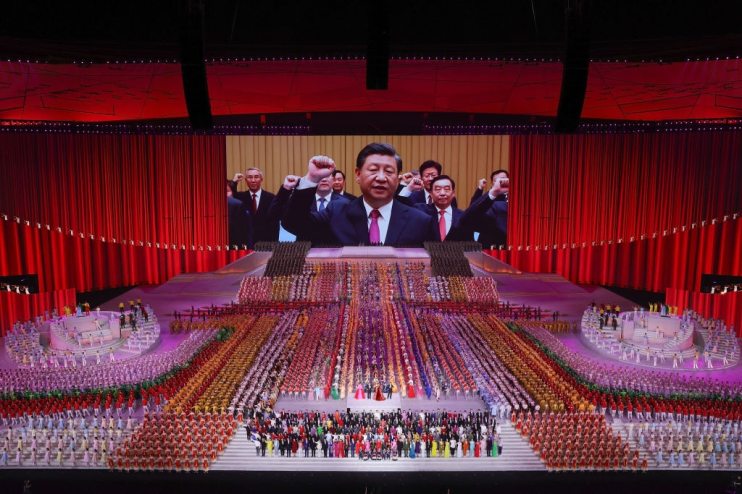Blinken’s unmistakable warning to China: US will fight aggression and defend rules-based system

America and its allies must stand up for a rules-based system threatened by Chinese aggression, US secretary of state Antony Blinken has warned although he stressed a confrontation with China is not inevitable.
Blinken spoke shortly before a meeting with the foreign ministers of Australia, India and Japan in Melbourne.
The four nations form the so-called “Quad”, a bloc of Indo-Pacific democracies created to counter China’s regional influence.
When he was asked by a reporter if a confrontation with China in the Indo-Pacific was inevitable, Blinken replied: “Nothing is inevitable.”
“I think we share concerns that in recent years China has been acting more aggressively at home and more aggressively in the region and indeed potentially beyond,” the top US envoy added.
The Quad partners are united by an “affirmative vision for what the future can bring” and a “commitment to defend the rules-based system that we have spent tremendous time and effort building”, he said.
Blinken’s trip is designed to reinforce America’s interests in Asia and its intent to push back against increasing Chinese assertiveness in the region.
He will also visit Fiji and discuss pressing concerns about North Korea with his Japanese and South Korean counterparts in Hawaii.
China response
Chinese Foreign Ministry spokesman Zhao Lijian dismissed Quad concerns about Beijing’s expanding influence among Pacific island nations.
China’s support for Pacific island countries is “open, transparent and inclusive, without targeting any third party,” Mr Zhao said, in an apparent reference to the US and its allies.
“We hope all countries will take concrete actions to help Pacific island countries deal with their challenges and do more to contribute to regional peace, stability and development,” he said at a daily briefing.
The Chinese foreign ministry this week accused the United States of using the Quad to force other countries to accept the standards of American democracy.
Australia has suffered trade retaliation in recent years after angering Beijing with actions that include outlawing covert foreign interference in domestic politics, banning Chinese tech giant Huawei from major infrastructure projects and demanding an independent investigation into the origins of the Covid-19 pandemic.
Summit in Australia
Australian prime minister Scott Morrison said he felt reassured by the shared commitment against coercion after meetings with Blinken, Indian external affairs minister Subrahmanyam Jaishankar and Japanese foreign minister Hayashi Yoshimasa.
“The things we discussed today are principally how we will continue to always stand up for our values … which is what unites us most,” Mr Morrison said.
“In doing so, we stand up to those who would seek to coerce us. And as I understand from our Quad partners, none of you understand better than we do. And that is a great comfort to us that the coercion and the pressure that Australia has been placed on, we greatly appreciate your support,” he added.
Australian defence minister Peter Dutton told parliament on Thursday that Australia was facing the “most complex and potentially catastrophic regional security environment” since the Second World War.
Earlier on Friday, Mr Blinken and Mr Hayashi held a bilateral meeting in which they expressed “deep concern” about Russia’s strengthened military presence at the Ukrainian border, officials said.
The leaders also shared “grave concern” about North Korea’s escalating nuclear and missile development.
Australian foreign minister Marise Payne, who is chairing the Quad meeting, said the agenda would include Covid-19 vaccine distribution, cyber and critical technologies, countering malicious and dangerous disinformation, terrorism, maritime security and climate change.
Blinken is expected to address threats posed by a growing partnership between authoritarian Russia and China, particularly after the Sunday meeting in Beijing between Russian president Vladimir Putin and Chinese leader Xi Jinping at the opening of the Winter Olympics.